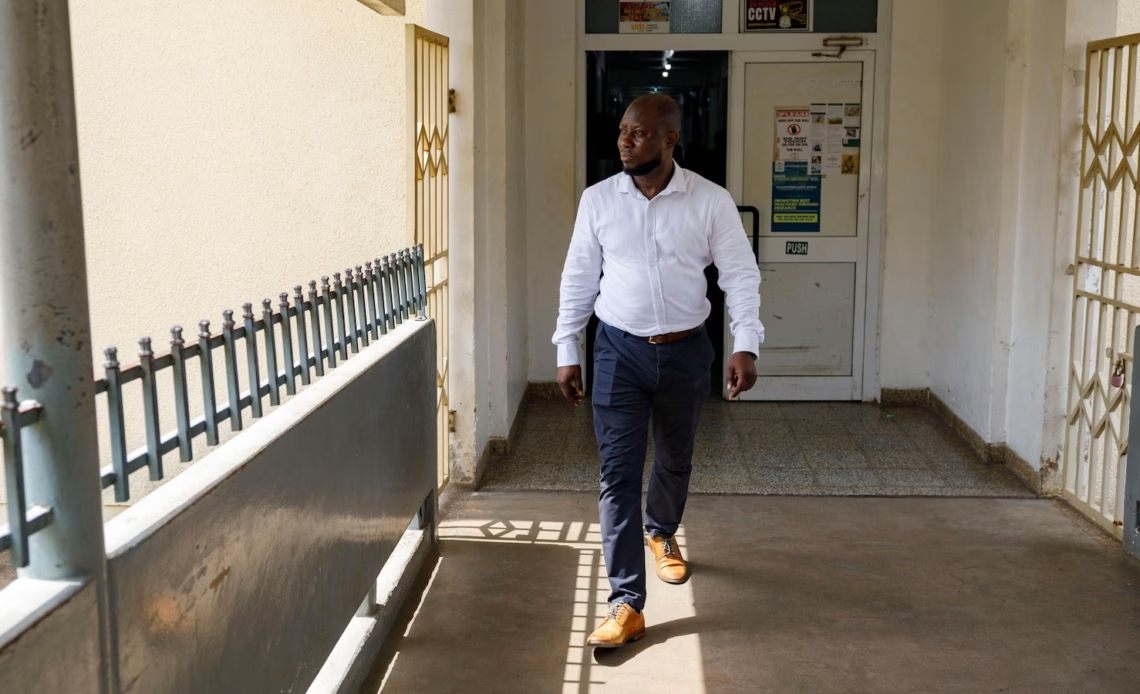KOFORIDUA, Ghana — Charles Owusu Aseku has traveled across Ghana and beyond in search of care for the large growth of tissue called a keloid on his neck since 2002. The 46-year-old was growing increasingly frustrated after two unsuccessful surgeries and a trip to South Africa that ended with just a consultation.
Aseku was preparing for yet another medical trip until late February when he joined others in the first trial of 3D telemedicine technology in Ghana powered through computer screens in the back of a van.
Those behind the initiative, developed by Microsoft’s research team in partnership with local doctors and researchers, say the remote assessment will help provide medical consultations for patients awaiting surgery or after an operation, in a region where the doctor-to-patient ratio is among the lowest in the world.
The project builds on earlier trials in Scotland and now works as a portable system with enhanced lighting and camera upgrades.
Once inside the van, cameras will capture a 3D model of each patient and the image is then projected onto a large computer screen. Multiple doctors can join the consultation session online and manipulate the 3D model to assess the patient.
“The idea behind the van is to allow it to travel to those remote villages that don’t have specialized care … to perform a pre or post-surgical consult,” said Spencer Fowers, principal software developer and 3D-telemedicine project lead at Microsoft Research.
The initiative also gives patients the opportunity to have multiple opinions. Aseku’s session had doctors from Rwanda, Scotland and Brazil, an experience that he said gave him hope.
“I see a lot of doctors here and I am very happy because experience will come from each of them and maybe they will find a solution to my problem,” the 46-year-old said.
Researchers hope the trial at the Koforidua Regional Hospital, in Ghana’s eastern region, is the start of a wider project that could expand the service and explore new use cases.
Recent years have seen growing use of telemedicine, especially since the COVID-19 pandemic. Experts say such digital tools can benefit patients in Africa the most because there are so few specialist doctors for the continent’s 1.4 billion people.
George Opoku, 68, was referred to the Korle-Bu Teaching Hospital in the capital Accra — nearly 100 kilometers away from the Koforidua hospital, which is much closer to his home — where he had first gone to seek care for sarcoma, a rare form…
Click Here to Read the Full Original Article at ABC News: Health…

